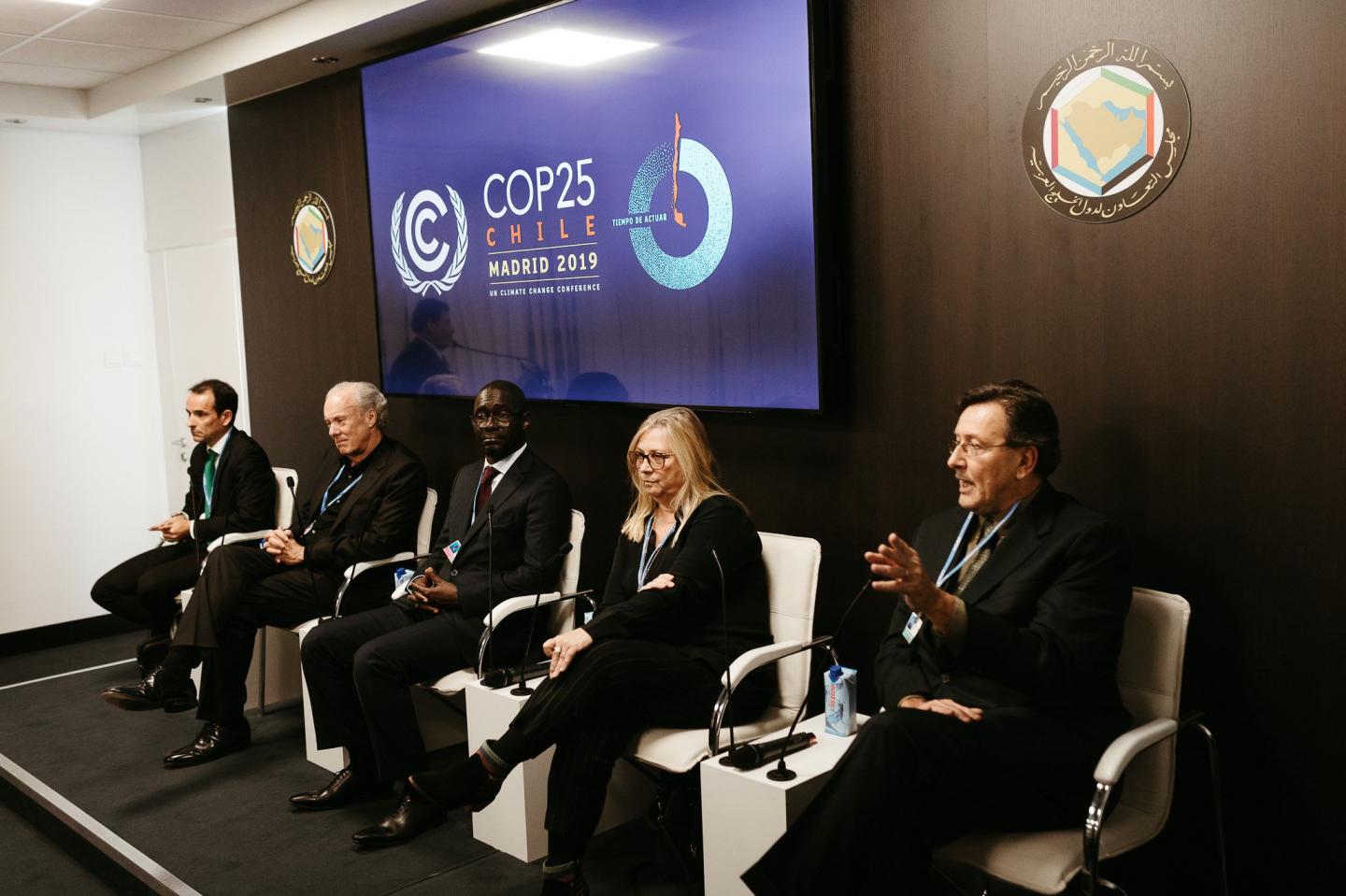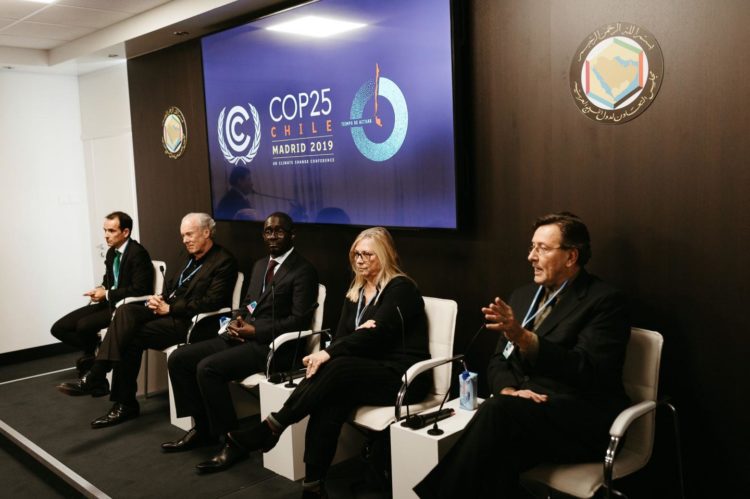
Credit: KAUST
12/12/2019 – COP25 MADRID, International scientists and innovators present the concept and components of the Circular Carbon Economy, including nature-based elements, technological underpinnings and its potential as a solution to the climate challenge.
Organized by the Ministry of Energy of the Kingdom of Saudi Arabia and King Abdullah University of Science and Technology (KAUST) the event took place in the Gulf Cooperation Council Pavilion at the UNFCCC COP25.
“Recognizing the urgency to act on the climate while ensuring access to clean and affordable energy for all, the Kingdom of Saudi Arabia is promoting the ‘Circular Carbon Economy’ model as a sustainable, pragmatic and cost effective approach for achieving ambitious climate goals.” Says panel moderator, Dr. Khalid Abuleif, Chief UNFCC Negotiator for the Kingdom of Saudi Arabia.
Pioneering a new narrative for carbon, the environmental architect William McDonough, of William McDonough & Partners says, “Carbon has been demonized but carbon is not the enemy. The current problem is one of mismanaged carbon resulting from design failures. We need a new narrative of carbon that recognizes the benefits of carbon and addresses the risks in a responsible manner. This leads us to a narrative of how we can redesign our products, buildings, systems, and cities in a circular carbon economy to improve the health of our planet.”
KAUST is catalyzing the circular carbon economy by contributing scientific advances in the development of engineering, chemical and biological technologies in addition to clean and traditional energy solutions which includes hydrogen fuel and advanced materials.
Discussing opportunities for CO2 utilization, Professor Jorge Gascón, Director of KAUST Catalysis Research Center says, “We, catalysis researchers, are modern alchemists, we look for the philosopher’s stone, the one that will help us turn waste (CO2) into value. We are about to have another revolution in the way we use our resources and in the way we produce and store energy, and I believe catalysis will play a huge role. At KAUST we are in an excellent position to contribute strongly to that transition.”
The circular carbon economy is a system where carbon emissions are reduced, reused, recycled and removed (4R). Such a closed-loop system, inspired by how nature works, may help restore the balance of the carbon cycle.
On learning from nature and its potential to contribute to the balanced and safe management of carbon Dr. Carlos Duarte, Professor of Marine Science at KAUST says, “The biosphere established a finely tuned global carbon cycle that moves enormous amounts of carbon while maintaining climatic stability. We need to learn from how nature does this and embed society’s processes within the circular carbon economy of the biosphere. We need to unveil the many processes that support the global carbon cycle, from microbes to whales, and translate these into technologies that allow humans to manage carbon in a manner consistent with the global carbon cycle.”
On rebuilding ocean carbon, Dr. Susana Agustí, Professor of Marine Science at KAUST says, “The oceans play a fundamental role in the global carbon cycle, holding the largest carbon stock in the biosphere. Its capacity to remove CO2 has been eroded due to global warming and losses of about 50% of coastal habitats. However, conservation and restoration of marine forests represents a strategy, that we call ‘blue carbon’ which can advance climate change mitigation with adaptation benefits.”
The concept of a circular carbon economy is a new way of approaching energy and climate goals that implicitly values all options and encourages all efforts to mitigate carbon accumulation in the atmosphere while also facilitating global economic growth.
###
Notes to Editors:
Images: https:/
About KAUST
Established in 2009, King Abdullah University of Science and Technology (KAUST) is a graduate research university devoted to finding solutions for some of the world’s most pressing scientific and technological challenges in the areas of food, water, energy and the environment. With 19 research areas related to these themes and state-of-the art labs, KAUST has created a collaborative and interdisciplinary problem- solving environment, which has resulted in over 11,000 published papers to date.
With over 100 different nationalities living, working and studying on campus, KAUST has brought together the best minds and ideas from around the world with the goal of advancing science and technology through distinctive and collaborative research. KAUST is a catalyst for innovation, economic development and social prosperity in Saudi Arabia and the world.
For additional information, visit: http://www.
Media Contact
Alexander Buxton
[email protected]
966-054-470-1577





